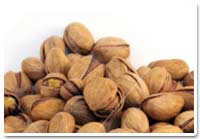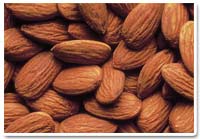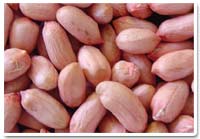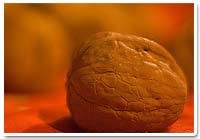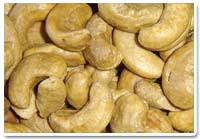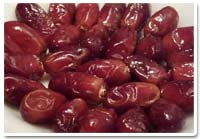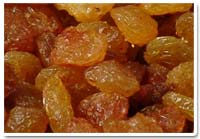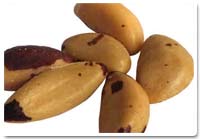Pecan
Introduction

What are Pecans?
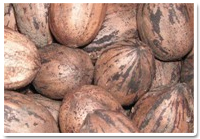
Etymology
The name “pecan” is a Native American word of Algonquin origin that was used to describe “all nuts requiring a stone to crack”.
A Brief Historical Background
Interesting Facts about Pecans
- Pecans were used to produce a fermented intoxicating drink called “Powcohicora” (where the word “hickory” comes from). It also is said that Native Americans first cultivated the pecan tree
- The U.S. produces about 80 percent of the world’s pecan crop
- Before a shelled pecan is ready to be sold, it must first be cleaned, sized, sterilized, cracked and finally, shelled.
- Pecans could improve your love life. If the body does not get enough zinc, it may have difficulty producing testosterone – a key hormone in initiating sexual desire in both men and women. Pecans provide nearly 10 percent of the recommended Daily Value for zinc.
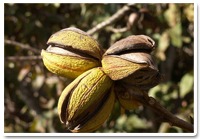
Nutritional Pecans
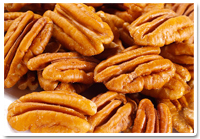
Pecans can aid in weight loss and maintenance. According to this study/research peacan consumption may increase metabolic rates and enhance satiety. When used in conjunction with a healthy low-fat diet, it also offer increased flavor, palatability and texture that can lead to greater dietary compliance.
Pecans contain more than 19 vitamins and minerals – including vitamin A, vitamin E, folic acid, calcium, magnesium, phosphorus, potassium, several B vitamins and zinc. One ounce of pecans provides 10 percent of the recommended Daily Value for fiber. Pecans are also a natural, high-quality source of protein that contain very few carbohydrates and no cholesterol. Pecans are also naturally sodium-free, making them an excellent choice for those on a salt- or sodium-restricted diet.
Nutritional Pecans
- When selecting pecans, look for plump nutmeats that are fairly uniform in color and size
Always keep your pecans in clean and dry containers to protect them from insects and odors. Their high oil content absorbs foreign flavors readily - Pecans should be kept under refrigeration to best preserve their fresh color, aroma, and flavor. The lower the temperature, the longer the nuts will keep
- Pecans stored at room temperature will remain fresh for only about 2 months; in the refrigerator they may be kept for about 9 months; and in the freezer, they will remain in good condition for 2 years
- Remember to thaw the frozen nuts before using. You may freeze your pecans again and again without affecting their quality or texture.
Asian Duck Salad with Watercress and Pecans
Serves 4
Ginger Dressing:
- ¼ cup light olive oil or vegetable oil
- 2 tablespoons balsamic vinegar
- 2 tablespoons reduced-sodium soy sauce
- 1 tablespoon honey
- 2 small cloves garlic, chopped
- 1 teaspoon grated peeled fresh ginger
- 1 teaspoon toasted sesame oil
Salad:
- 2 teaspoons vegetable oil
- 2 skinless duck breasts, 4 oz. each (or substitute chicken or turkey)
- 1/8 teaspoon salt
- 1 bunch (6 oz.) watercress
- 1 large carrot, peeled
- ¾ cup toasted pecan halves
- 2 tablespoons minced radish, red part only (optional)
Prepare Dressing: In a blender or small food processor, combine all Ginger Dressing ingredients; mix until garlic is very finely chopped and ingredients are well blended. Set aside while preparing salad.
Heat the 2 teaspoons oil in medium skillet over high heat. Sprinkle duck breasts with salt. When oil is hot but not yet smoking, add duck. Reduce heat to medium high and cook until well browned—about 5 minutes; turn duck breasts and cook until browned on other side but pink in the middle—about 4 to 5 minutes longer. Transfer duck to cutting board and let rest 5 minutes.
Meanwhile, remove and discard tough stems from watercress. Cut carrot into thin matchstick-size sticks and combine with watercress. Toss salad mixture with half the Ginger Dressing. Mix remaining dressing with the pecans.
To serve, thinly slice duck and divide among four serving plates, fanning slices. Arrange watercress mixture in a small mound on each plate and spoon pecans on top. If desired, sprinkle with radish to garnish.
Nutrition information per serving: protein: 13g; fat: 17g; saturated fat: 3g; carbohydrate: 8g; fiber: 2g; sodium: 424mg; cholesterol: 44mg; calories: 234.






